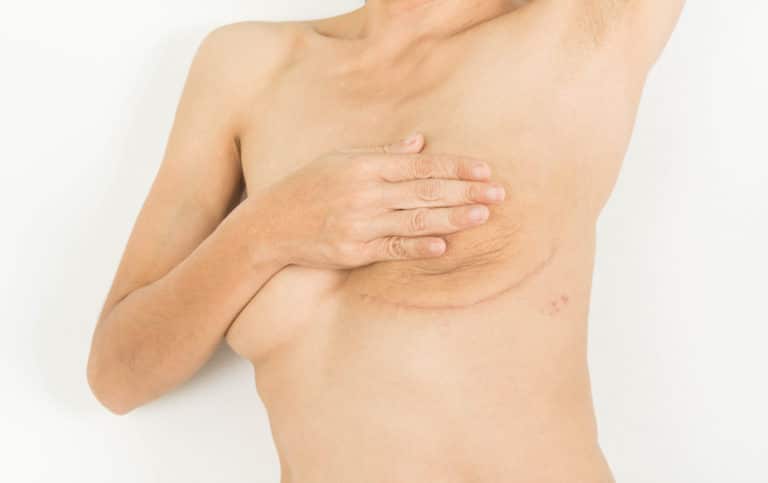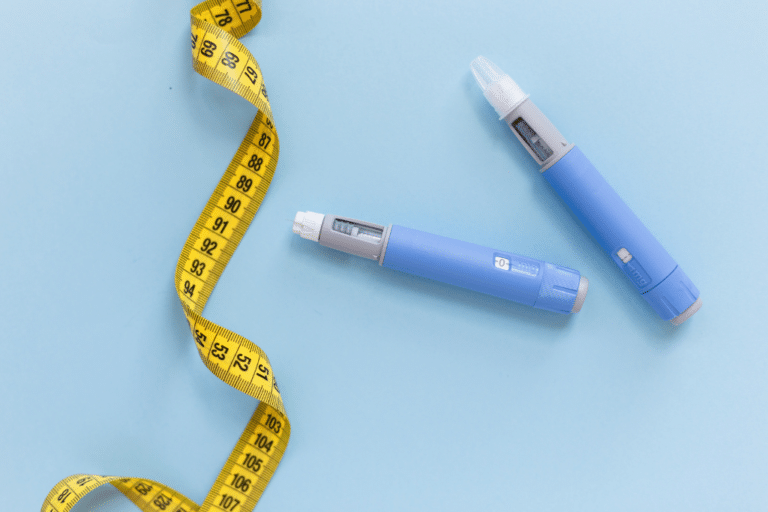Approximately 1 in 8 women (13%) will be diagnosed with invasive breast cancer in their lifetime and 1 in 39 (3%) will die from the disease. Chemotherapy, anti-estrogen therapy, surgical removal of the ovaries, and radiation can induce menopause in women who are not yet menopausal. This phenomenon known as “induced menopause” can cause symptoms such as vaginal dryness, painful intercourse, hot flashes, anxiety, and insomnia (among others).
Managing these symptoms is more challenging after the diagnosis of hormone-sensitive cancer. So what’s a Savvy Sister to do to stay balanced and feeling good after breast or ovarian cancer treatment?
Can I Take Hormone Therapy After Breast Cancer?
Hormone replacement therapy is the most effective approach for managing symptoms of hormone imbalance, but that option is generally off the table after a cancer diagnosis. In 2003, researchers published the results of a landmark trial, HABITS (Hormone Replacement Therapy After Breast Cancer-Is it Safe?), that showed an increased risk of breast cancer recurrence with the use of hormonal replacement therapy. The results were so significant that the trial was stopped early. Having said this, for women who are truly suffering and who have made the appropriate lifestyle changes, the choice of hormone replacement may boil down to a risk/benefit conversation with your oncologist.
While most physicians will shy away from ANY hormone therapy, there is evidence that progesterone can improve outcomes after breast cancer and may have a protective effect. Synthetic progestins SHOULD be avoided as they increase breast cancer risk.
Testosterone and DHEA are other hormones that are commonly used to treat peri(menopausal) symptoms, however, both of these can ultimately turn into estrogen by a process called aromatization. Aromatase inhibitors (see below) will block this process, but again, the risks and benefits should be carefully considered before use.
To further complicate the picture, medications that are used for the treatment of breast cancer can also cause symptoms. Aromatase inhibitors are commonly prescribed to women with breast cancer. They work by decreasing the body’s ability to produce estrogen. A common side effect of these medications is hot flashes (and other perimenopausal symptoms).
Relieving Peri(Menopausal) Symptoms After Breast Cancer
Now that we’ve covered what we CAN’T do, let’s look at what we CAN do. Here are some suggestions that can help you manage symptoms more effectively:
Vaginal dryness– also known as vulvovaginal atrophy; vaginal dryness and discomfort can put a huge damper on your intimate life.
- Use vaginal moisturizers or gels and invest in a good quality lubricant.
- Discuss the possibility of topical estrogen with your healthcare provider. Interestingly enough, studies have found that estrogen used either intravaginally or topically in the vaginal area does not have the same risk of recurrent breast cancer due to a lack of systemic absorption.
- Vaginal DHEA also offers relief from dryness. It too has low systemic absorption and can be very effective.
Insomnia– lack of sleep and sleeping problems are some of the most debilitating symptoms of hormonal changes.
- Try avoiding screens before bedtime as blue light interferes with melatonin production.
- Consider adding a magnesium supplement before bedtime.
- Check out other supplements such as GABA and l-theanine to help with sleep.
- Melatonin may be helpful in the short-term but can decrease the brain’s ability to produce it when used long-term.
Anxiety– Stress and anxiety are common in perimenopause. Your shifting hormone levels start to interfere with your production of cortisol, the “stress hormone”.
- Incorporate time every day to breathe or practice “breathwork”. Yoga is a great way to move your body and breathe.
- Learn to say, “No.” As women, we tend to shoulder the responsibility of the world and we need to learn self-care.
- Consider the use of adaptogenic herbs, l-theanine, or essential oils.
Hot flashes/night sweats– uncomfortable, and often appearing unexpectedly, hot flashes are a common phenomenon during the perimenopausal years. If they occur during sleep, they can result in a drenching sweat, disrupting sleep. Some non-hormonal ways to deal with hot flashes and night sweats are:
- Avoid triggers such as caffeine, alcohol, and hot foods (both spicy and temperature).
- Lose extra body weight. Several studies have found a higher body mass index (greater than or equal to 27 kg/m2) to be a predictor of hot flash frequency.
- Keep a frozen cold pack under your pillow and turn your pillow often during the night to alleviate night sweats. Also, sleep with a fan and use air conditioning.
- Acupuncture. There is data that suggests acupuncture is an effective remedy for hot flashes.
- Exercise. Studies have shown that 30 minutes of cardio exercise daily can help relieve hot flashes.
What About Severe Hot Flashes? Are There Medications That Can Help?
If your hot flashes are so debilitating that they are affecting your quality of life, it may be time to explore relief in the form of prescription medication. There are several different classes of drugs that have been shown to offer some relief of hot flashes that are appropriate options for women who have had a cancer diagnosis. Some of them include:
Antidepressants– a low dose form of paroxetine (Brisdelle) is the only nonhormonal form of treatment for hot flashes that are approved by the FDA. Other antidepressants that can be helpful are:
- Paroxetine (Paxil)
- Venlafaxine (Effexor)
- Citalopram (Celexa)
- Escitalopram (Lexapro)
These medications may take time to work and must be slowly tapered off if you wish to discontinue them.
Other Prescription Medications
- Gabapentin(Neurontin)/Pregabalin (Lyrica)- are both anti-seizure medications used in reducing hot flashes.
- Oxybutynin (Ditropan XL, Oxytrol)- often used to treat urinary conditions like an overactive bladder can also relieve hot flashes in some women.
- Clonidine (Catapres, Kapvay, others)- used to treat high blood pressure has been shown to reduce hot flashes.
A Note About Herbal Remedies
Many herbs are touted for the relief of menopausal symptoms. Unfortunately, most of these have weakly estrogenic properties, meaning they can sit in the estrogen receptor and act like estrogen in the body. Ask your healthcare provider or pharmacist before using these products.
In summary, most breast cancers that form are fed (not created) by estrogen. While the use of systemic hormone therapy may not be an option, there are other many different ways to effectively manage perimenopausal symptoms.
[bctt tweet=”While the use of systemic hormone therapy may not be an option after a breast cancer diagnosis, there are many different other ways to effectively manage perimenopausal symptoms. #perimenopause #menopause #breastcancer #hormones #estrogen #progesterone #testosterone #hotflashes #inducedmenopause #vaginaldryness #AnnaGarrettAsheville” username=”DrAnnaGarrett”]
Dr. Anna Garrett is a menopause expert and Doctor of Pharmacy. She helps women who are struggling with symptoms of perimenopause and menopause find natural hormone balancing solutions so they can rock their mojo through midlife and beyond. Dr. Anna is the author of Perimenopause: The Savvy Sister’s Guide to Hormone Harmony. Order your copy at www.perimenopausebook.com.
Dr. Anna is available for 1-1 consultations. Find out more at www.drannagarrett.com/lets-




